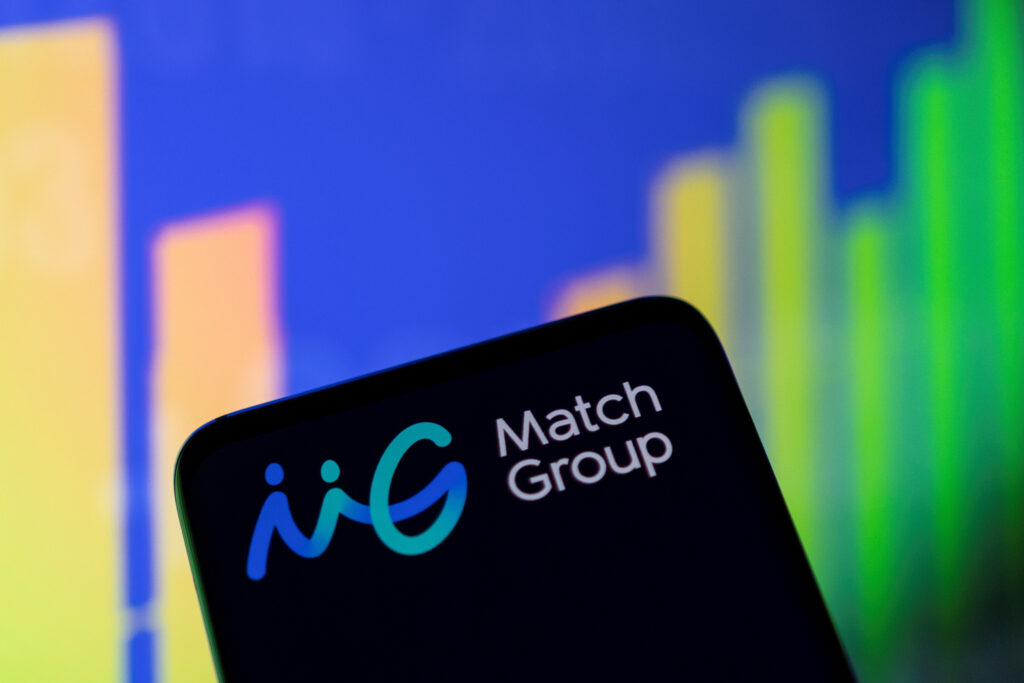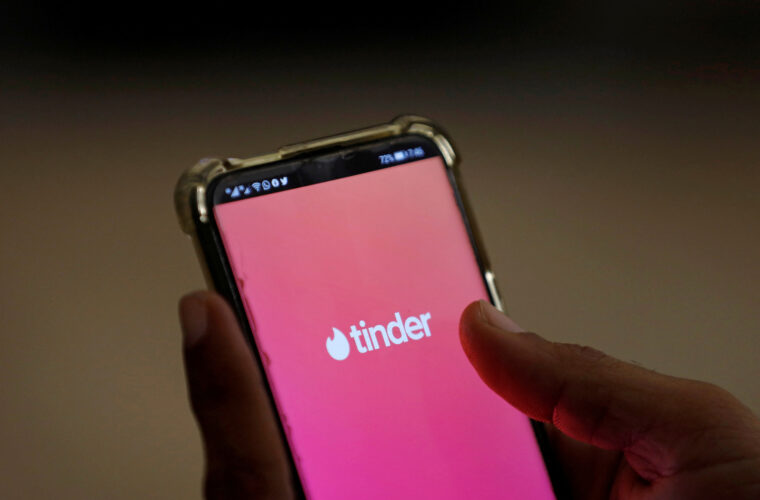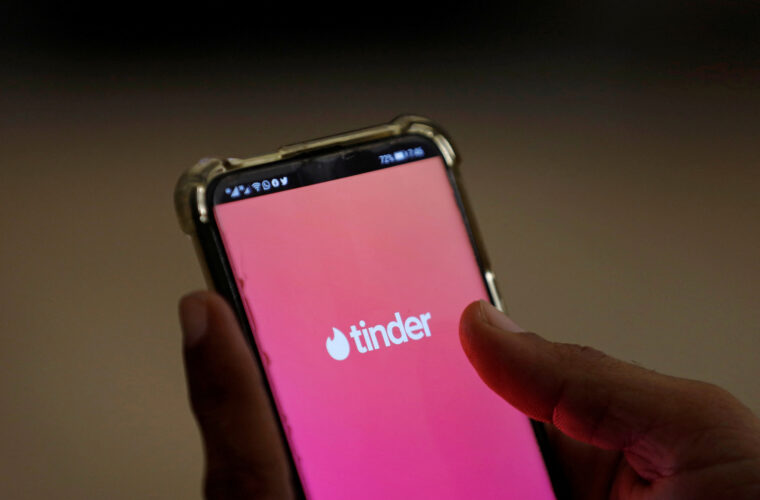
By Vansh Agarwal and Shreyaa Narayanan
(Reuters) – Match Group Inc on Tuesday forecast first-quarter revenue below expectations after Tinder, the face of online dating, became a sore point in 2022 and drove the company’s first ever quarterly decline.
While a tough economy and a stronger dollar had also crimped its business, poor product execution at Tinder was the “significant” culprit, Match said. Dating app Hinge’s business was also hit by product delays, among other headwinds.
Shares of the Dallas, Texas-based firm fell nearly 11% in trading after the bell, with Match saying it will book charges of about $6 million in 2023, following cuts to marketing spend, headcount and real estate expenses in a cost-saving drive.
The company, which has largely relied on word-of-mouth advertising so far, said Tinder will be launching its first global marketing campaign in the current quarter to improve brand perception.
The move comes after analysts expressed concerns that its minimal advertising efforts for Tinder would suppress business as competition intensifies from the likes of Bumble Inc while growing fears of a recession deter lower-income users.
“Price sensitivity is increasing given the current macro environment, and our experts think users’ willingness to pay is beginning to hit a limit,” said Third Bridge analyst Nicholas Cauley.
Tinder’s revenue per payer declined 2% in the quarter.
Match reaffirmed its 2023 revenue growth forecast of 5% to 10%. It expects revenue growth to reach double digits by the fourth quarter on increasing momentum in the second half.
The company forecast first-quarter revenue between $790 million and $800 million, lower than analysts’ estimates of $817.3 million, according to Refinitiv data. It cited in-app purchase fees as a major year-over-year headwind.
Revenue fell 2% to $786 million in the fourth quarter ended Dec. 31, also missing expectations of $787.3 million.
Total payers fell 1% to 16.1 million.



